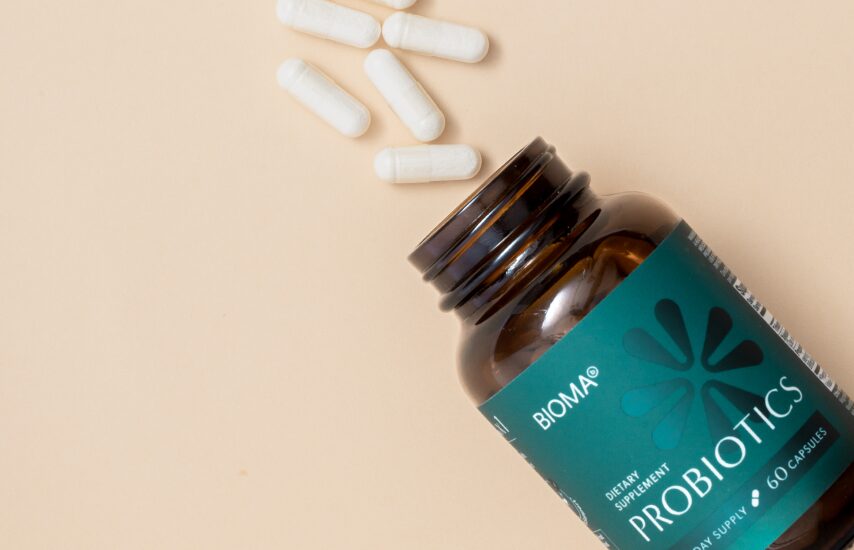How Long Does It Take for Probiotics to Work?

Probiotics have gained immense popularity for their potential to support gut function and overall well-being. However, many individuals are left wondering: how long does it take for probiotics to work?
In this comprehensive guide, we delve into the various factors influencing the effectiveness of probiotics and provide valuable insights into managing expectations.
What Are Probiotics?
Probiotics are living microorganisms, primarily bacteria and some yeasts, that offer a myriad of health benefits when consumed in adequate amounts. Found in certain foods, such as yogurt, kefir, sauerkraut, and kimchi, as well as in probiotic supplements, these beneficial microbes play a crucial role in maintaining a balanced and healthy gut microbiome. By colonizing the gut, probiotics help to crowd out harmful bacteria, support digestive health, and modulate the immune system.
In addition to their role in gut health, probiotics have been linked to various other health benefits, including supporting immune function, promoting skin health, and even influencing mental health through the gut-brain axis.
As interest in probiotic use continues to grow, understanding their mechanisms of action and potential benefits is essential for optimizing their effectiveness. Stay tuned for more insights on probiotic supplementation and how it can impact your overall well-being.
Factors Influencing Probiotic Effectiveness

The effectiveness of probiotics can be influenced by various factors, ranging from the quality of the probiotic supplement to individual differences in the digestive system and microbiota composition. Here are some key factors to consider:
Strain and dosage. Different probiotic strains may have varying effects on health, so choosing the right strain for your specific needs is crucial. Additionally, the dosage of probiotics can impact their effectiveness, with higher doses often leading to more significant benefits.
Quality of the probiotic supplement. Not all probiotic supplements are created equal. Look for products that contain high-quality strains, are manufactured by reputable brands, and have undergone third-party testing for potency and purity.
Gut environment. The health of your gut environment, including factors such as stomach acid levels and the presence of other gut microbes, can influence how well probiotics survive and colonize the gut.
Individual factors. Individual differences in gut microbiota composition, diet, lifestyle, and overall health can affect how well probiotics work for each person. Factors such as dietary habits, stress levels, and medication use can all impact the efficacy of probiotic supplementation.
| Discover Bioma: Your Gut Health Solution For those seeking a convenient and effective probiotic supplement, consider exploring options like Bioma. Bioma combines probiotics, prebiotics, and postbiotics, offering a multifaceted approach to well-being. With a range of probiotic strains and formulations tailored to meet diverse gut health needs, Bioma provides a reliable solution for those looking to optimize their digestive well-being. Incorporating Bioma into your daily routine can help you unlock the full potential of probiotics and enjoy the benefits of a healthier gut microbiome. |
Probiotic Short-Term vs. Long-Term Effects
When it comes to probiotic supplementation, it’s essential to distinguish between short-term effects and long-term benefits. Understanding these differences can help manage expectations and optimize your healthier gut journey.
Short-term effects. Some people may experience immediate benefits from probiotic consumption, such as relief from bloating, gas, and digestive discomfort. These short-term effects are often the result of probiotics quickly colonizing the gut and restoring microbial balance. However, these effects may vary depending on factors such as the strain and dosage of the probiotic and individual microbiome.
Long-term benefits. While short-term effects are noticeable, the true power of probiotics lies in their long-term benefits. Over time, consistent probiotic supplementation can lead to significant improvements in gut function, including enhanced immune function, reduced inflammation, and better digestive function. These long-term effects are the result of probiotics establishing themselves in the gut and exerting their beneficial effects over an extended period.
By recognizing the distinction between short-term effects and long-term benefits, you can better understand the role of probiotics in promoting overall health and well-being. Incorporating probiotics into your daily routine can provide both immediate relief and long-term support for your gut and immune system.
Common Timelines for Probiotic Benefits

Understanding the timeline for probiotic benefits is crucial for those seeking to optimize their digestive health and overall well-being. As probiotics interact with the gut microbiome, various factors influence their effectiveness and the timeline for experiencing noticeable improvements:
After a day
Upon beginning probiotic supplementation, some individuals may immediately notice changes in their digestive system, such as increased bowel movements or a reduction in bloating. These early signs indicate that probiotics are working to rebalance the gut microbiota.
The influx of beneficial bacteria from probiotic supplements begins to combat pathogenic bacteria in the gut, promoting a healthier gut flora and supporting digestive health.
After a week
By the end of the first week, many users experience a significant improvement in digestive issues, such as irregular bowel movements or discomfort. The establishment of healthy gut bacteria contributes to a more stable gut environment.
Individuals with irritable bowel syndrome may notice a reduction in symptoms as probiotics work to alleviate gut discomfort and restore balance.
After three weeks
Continued supplementation with probiotics leads to further enhancement of digestive health. Users may observe more regular bowel movements and a decrease in intestinal discomfort as the gut microbiome becomes more diverse.
The immune system benefits from the presence of good bacteria, resulting in a stronger immune response and improved immune health.
After a month
By the end of the first month, individuals often experience a notable improvement in overall gut health. Digestive issues such as bloating and indigestion become less frequent, and gut barrier function improves.
The ongoing presence of probiotic bacteria supports cognitive function by promoting a healthy gut-brain axis, leading to clearer thinking and improved mental clarity.
After three months
Long-term probiotic treatment results in sustained benefits for digestive health and overall well-being. Users may enjoy more consistent bowel movements, reduced intestinal discomfort, and a greater sense of gut comfort.
The presence of beneficial bacteria in the gut continues to support the immune system, reducing the risk of infections and enhancing immune function.
By adhering to a regimen of taking probiotics and selecting a high-quality probiotic supplement, individuals can effectively nurture their gut microbiota and reap the many benefits of probiotic treatment.
Tips for Maximizing Probiotic Effectiveness

To ensure that you’re getting the most out of your probiotic regimen, consider incorporating the following strategies into your daily routine:
Include fermented foods. Incorporating fermented foods into your diet can provide a natural source of beneficial bacteria. Options such as yogurt, kefir, sauerkraut, and kimchi can help diversify your gut flora and complement the effects of probiotic supplements.
Maintain a healthy lifestyle. Supporting your gut function extends beyond probiotic supplementation. Healthy adults can further enhance their digestive health by staying hydrated, consuming a balanced diet rich in fiber and nutrients, and engaging in regular exercise.
Choose the right probiotic. Selecting a high-quality probiotic supplement is crucial for ensuring its effectiveness. Look for products that contain a variety of probiotic strains and are backed by scientific research. Consulting with a healthcare professional can help you identify the most appropriate probiotic product for your needs.
Monitor bowel movements. Pay attention to your bowel movements while taking probiotics. Changes such as irregular bowel movements or more frequent bowel movements may indicate that the probiotics are working to rebalance your gut bacteria. However, if you experience persistent digestive issues, consult with your healthcare provider to rule out any underlying concerns.
Support immune health. The immune system plays a vital role in maintaining a healthy gut. By prioritizing immune health through adequate sleep, stress management, and a nutrient-rich diet, you can create an environment conducive to the growth of healthy bacteria and the suppression of pathogenic bacteria.
By following these tips, you can optimize the effectiveness of your probiotic treatment and support your journey towards a healthier gut microbiome. Remember that consistency is key, and be patient as you await the long-term benefits of probiotics on your overall well-being.
Conclusion
The journey to harnessing the full potential of probiotics is an ongoing process that requires dedication and patience. As we’ve explored throughout this article, probiotics are working tirelessly within our bodies to restore balance to our gut microbiome and promote overall well-being. By incorporating dietary supplements and taking probiotics consistently, we empower ourselves to support the growth of beneficial bacteria while minimizing the influence of bad bacteria.
As we continue on our probiotic journey, it’s essential to remain mindful of our bodies’ responses and adjust our approach accordingly. Monitoring changes in bowel movements and immune health can provide valuable insights into how probiotics are working within our systems, guiding us toward a more balanced gut microbiome and improved overall health.
Incorporating probiotics into our daily routine is not just a short-term solution; it’s a commitment to long-term well-being. By nurturing our gut microbiome with high-quality probiotic supplements and supporting it with a nutrient-rich diet, we lay the foundation for sustained health and vitality.
Furthermore, it’s crucial to recognize that the benefits of probiotics extend beyond improved gut function alone. Research suggests that probiotics may also play a role in supporting cognitive function, skin health, and immune stimulation, among other areas of wellness. By prioritizing our gut health, we’re taking proactive steps toward enhancing our overall quality of life.
In essence, the journey to optimal gut health with probiotics is a multifaceted endeavor that requires commitment, patience, and a holistic approach to well-being. By embracing the power of probiotics and making informed choices about our dietary supplements, we can cultivate a thriving gut microbiome that serves as the cornerstone of our health and vitality for years to come.
References
Williams, N. T. (2010). Probiotics. American Journal of Health-System Pharmacy, 67(6), 449-458.
Oelschlaeger, T. A. (2010). Mechanisms of probiotic actions–a review. International journal of medical microbiology, 300(1), 57-62.
Kerry, R. G., Patra, J. K., Gouda, S., Park, Y., Shin, H. S., & Das, G. (2018). Benefaction of probiotics for human health: A review. Journal of food and drug analysis, 26(3), 927-939.
Related articles



